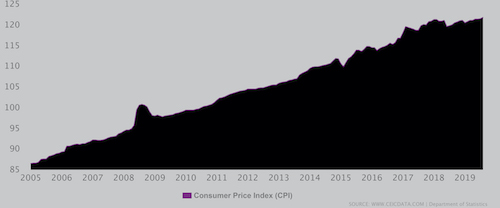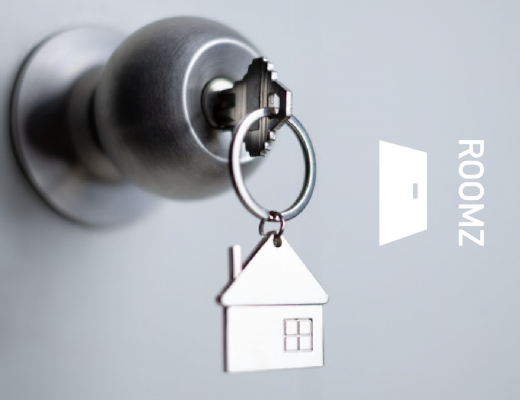Getting to Know Rent Adjustment on Tenancy Renewal
Before renting out a property, a tenancy agreement is made between the landlord and the tenant. This contract specifies all the provisions that both parties agreed upon at the start of the lease. Rental renewal is one important area that is included. After all, if things go well throughout the duration of the stay, there’s no reason why tenant will move out and look for another place, unless there are specific reasons, like perhaps a change in work or a family migration to another country.
If a landlord wants to increase one’s rent for renewal, there are legal procedures that he should keep in mind. There are requirements to follow. The landlord should provide the tenant with a notice of the increase and consequently, this must be provided within a reasonable period of time as stated in the tenancy agreement before the lease expires. Usually, the landlord provides a letter on the information of asking for a rental adjustment.
As a tenant, before you set out to agree on the rental adjustment which you know will be given after your lease expires, you may need to know a few factors that can help you negotiate with your landlord.
You may need to consider the following item as you discuss and negotiate with your landlord:
MARKET PRICE
It is a known fact that market demand determines the right rent. The landlord’s rental market price is not a one-time thing as he constantly looks at the market and adjusts the rate based on demand. Take for instance, when the economy is not good – some people may no longer afford to pay for their monthly home instalment. They may be forced to cut on costs by renting out instead. Such a bad economy may also cause a higher demand for cheaper and smaller apartments or condo units as people need to downsize and simplify. On the other hand, an example of greater demand for bigger rental spaces will be during summer when families move before the school year starts. Bigger apartments or units are sought after by a number of students, especially 2-3 siblings are all going to a college or university. A home near their school will be an advantage to them.
The basic rule to follow is this: If there’s a higher demand for your unit, a landlord may charge a higher rental cost. But if demand is lesser, they may have to lower the rent to attract more tenants.

As a tenant, it is best to be knowledgeable on this rental market price so you can bargain for adjustments, just in case. Look at the properties in the same area/neighbourhood as yours, but be more specific in your section. Of course, rent can go up if other areas are more desirable or have flourished over the others. Are there a lot of new constructions going on in your area? Or check other properties that are of the same size as your apartment or unit. There are a lot of options for verification. You may want to explore in checking the various platforms online. One good choice will be to check on the Roomz website for you to see a comparison of the rental prices on the same area/neighbourhood by the area search like Central Singapore condo for rent. This site has a number of listings to help you assess the rent adjustment being made on your current unit.
LENGTH of TENANCY EXTENSION
The length of your stay dictates the rental costs you have to pay. Generally, the longer the period of time for your lease, the lower the rental cost would be. This is understandable since it is not easy to look for a new tenant. A longer stay means a continuing income for the landlord. Cash flow is assured and this is definitely better than a property that’s idle for a month or two and worst, a year or even more than that. If you’ve been staying longer in your place and due for renewal, you may negotiate for rental adjustment to your benefit, especially if you’ve been a good tenant all along. If the landlord knows you’ve been a good payor who didn’t cause any problems and takes care of his property well, chances are he may give in to your request. As a tenant, if you’re happy and satisfied with a place that you’re occupying, it’s best to opt for a longer stay. Landlords also want good tenants to stay longer. A never-ending tenant turnover surely will cause worries for the landlord. An important goal for many landlords now is to have their good tenants renew their lease continually.
ECONOMIC INDICES
Measures of the economy such as GDP and CPI are also telltale signs for the dynamics of the real estate industry. The Consumer Price Index or CPI measures changes in the prices paid by consumers for goods and services. In Malaysia, the latest figures show CPI fell by a few points for the month of April this year perhaps due to economic inactivity (quarantine) caused by the pandemic. This is actually a global trend.
On the other hand, the Gross Domestic Product or GDP measures the national income and output for a country’s economy. The GDP is equivalent to the total expenditures for all final goods and services produced within the country in a given period of time. It is said that Malaysia’s GDP will decelerate within 2020, a bit lower than the government’s forecast. GDP’s economic drivers are varied per country – some will have tourism, others are in real estate, or manufacturing, and the like.

Cost of living increases if the economy is slowing down and the cost of the currency is depreciating. This means prices of real estate properties also increase, though maybe at a slower pace. Of course, with higher economic growth and income, people will have more spending power in buying houses or renting (as more people are able to borrow money in banks), thereby increasing demand and subsequently pushing the prices up.
As GDP growth is the main driving force for real estate prices and rents as well as investments on the real estate industry, it directly has an impact on the strong growth of these economies.
Per the latest Property Guru Malaysia Property Market Index’s report – the residential property’s asking price is in an upward trend for most markets in the country, even with the ongoing Covid-19 pandemic. This seems to be a very optimistic and promising update, to say the least.
MUTUAL ADVANTAGE for both PARTIES
A rental renewal is advantageous to both parties: landlord and tenant. Why is this so?
Real estate agents generally earn their income with the commissions paid directly to brokers when transactions are finalized and settled. Commissions are usually divided among the buyer’s agent and broker as well as the listing agent and broker. If a tenant decides to renew his lease, the landlord will be able to save on such commissions. Besides this, the landlord’s income is flowing since the unit would not be left idle or vacant for even a day. For the tenant, no need to spend much time and effort to look for another place. Plus, the familiarity of the neighbourhood with people and conveniences around is also a big help. This is aside from the good relationship and trust built with the landlord which somehow gives a feeling of security to the tenant. These are “intangibles” that are certainly worth the hassle of looking for and having a new place to stay. Conversely, a landlord would prefer problematic tenants to move out elsewhere, but for good tenants to stay put in his property. Getting a tenant who pays on time, doesn’t complain much, organized and clean is not easy so having this type of tenant to renew the lease is very ideal for the landlord. You can never be sure what you’re going to get for a new tenant in your property even though you would screen them well. It is also a fact that good tenants make it easier to attract other good tenants in the long run. No one wants to live in a noisy, dirty and disorderly environment so this should be something that the landlord should have in mind for rental renewals.
Having read the above, we hope we have provided you with a logical framework to consider as essential when checking rental market prices and adjustments, both as a landlord and a tenant. The best thing to do is to discuss openly and thoroughly any issues related to this subject before making a decision that will affect both parties. Knowledge of basic real estate information is necessary along with experience to make it work effectively.




